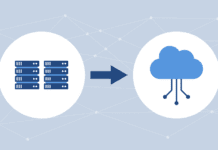UPDATED: Microsoft entered the disk-based backup and recovery market with
the launch of Data Protection Server (DPS) at Storage Decisions 2004 in
Chicago today.
The new server improves the efficiency of retrieving files and safeguards
data in its Windows Server System family. It also helps administrators use
such Windows Server products as the Active Directory service, Microsoft
Windows Server 2003 and Microsoft
Windows Storage Server 2003.
The DPS release comes at a time when
concerns about protecting information have been heightened due to record
retention regulations.
Rakesh Narasimhan, general manager of Data Protection Server at Microsoft,
said the server provides rapid backup and recovery on disks, allowing
administrators and end users to recoup data in minutes rather than hours.
“Customers continue to tell us that there is a need for dependable, easy to
use and affordable solutions for disk-based data protection,” Narasimhan
told internetnews.com. “Customers told us the savings they need in
costs and time. Recovery is often unreliable and painful. We’ve seen
recovery take hours to days when it should be seconds to minutes.”
The executive said technology isn’t entirely to blame here, noting that
infrastructure and manual labor make backing up data complex. Because of the
well-publicized explosion of data, Narasimhan said IT administrators are
struggling to deal with the ever shrinking backup window, making speedy,
low-cost disk backup more attractive.
Enter DPS, which also integrates with tape through a backup interface based
on the Volume Shadow Copy Service (VSS) API included in Windows Server 2003.
It will allow tape back-up partners, such as StorageTek, to address their
customer needs for backup and recovery in Windows environments.
Alex Gorbansky, senior analyst at the Taneja Group, said using disks for
data protection helps ramp up data-recovery time over legacy tape approaches. He
also said that while Microsoft may compete with some of its partners in
certain accounts, the industry is moving toward a model where rivals coexist
and work together to serve customers.
“People want to introduce a disk tier to speed up recovery, reduce
management, reduce back-up windows and overall cost of back-up management,”
Gorbanksy told internetnews.com. “Microsoft is giving people the
opportunity with Data Protection Server to back up file servers to
disk-based mediums but maintain their existing investments in back-up
software, whether its Legato or CA or Veritas.
“If I’m a Legato user, I use Data Protection Server to backup my data to
disk and use Legato to archive it to tape,” Gorbanksy continued. “To some
extent, this is going to be competitive because Legato and Veritas have
introduced these things called advance back-up modules, which enable you to
backup data to disk. But that’s not going to be a huge issue. Of course,
this only applies to homogenous Microsoft environments. Back-up vendors can
still maintain their presence in the shop.”
More than 20 partners in the storage space have blessed DPS, recognizing the
sweeping sphere of influence Microsoft’s server software has in the
industry. Support partners include EMC , Computer Associates
and Hitachi Data Systems
.
Currently available in a beta version, DPS is scheduled to be generally
available in the second half of 2005, with pricing to be determined.





